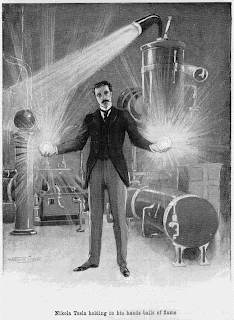Three years back, I remember receiving my first paycheck when I was worried about the amount going away as income tax. New to the whole idea of tax saving options, which are available, I went to a Tax consultant, to seek his advice on these tax saving instruments.
He suggested the best way, or so did he call it, for tax savings the ULIP or Unit Linked Insurance Plans, which offer both insurance and investment returns. I bought both the idea and ULIP as a gullible rookie as far as tax savings go.
Again in the same year I thought of investing in some other tax-saving instrument and opted for a Mutual Fund, the guy who came to my office again started talking about this wonder called ULIP as the best tax saving instrument and tried to push me into it once again. But failed this time coz I was adamant on buying a MF rather than a ULIP.
So, the question is, Is ULIP the best tax saving option available, what are the Fine prints which go unread and why are the Tax consultants so eager and pushy to sell the ULIP’s.
Let’s analyze this one by one…
Let’s analyze this one by one…
Tax saving options can be divided into two types, one which is tied to the market like ULIPs and MFs and therefore risky and others which are least risky like the PPF (Public Provident Fund), NSC (National Savings Certificate), Pension Funds, Fixed Deposits (FD) and Infrastructure Bonds (IB). But the returns of these instruments vary based on the amount of risk you are willing to take.
While PPF, NSC, Pension Funds, FD’s and IB’s offer a fixed rate of return, ULIP’s and MF’s offer varying returns since they invest in stocks and bonds depending on the type of plan which is chosen. Almost all these instruments have a lock-in period during which money cannot be withdrawn; The Lock-in period starts from a minimum of 3 years for ULIP’s and MF’s to a Maximum of 15 years in case of the PPF.
The best investment vehicle should be chosen based on the investment objective of the investor. The investor should understand that tax advantage is just an added incentive for investing in these options and not an objective in itself.
ULIP will be the preferred option if the investor’s objective is to buy an insurance policy which has investment also as an additional goodie. As an investment Vehicle ULIP will always fare far lesser than the Mutual Fund the entry load in an MF is far lesser than what goes in the name of service charges for an ULIP. And Insurance plans are available in the market for far lesser premiums than what is being charged under the name of ULIPs.
So what good is the ULIP, if you see ULIP as an investment vehicle providing high returns, a Mutual Fund will always fare better since for a ULIP the service charges range from 20% for the first year and 5-10% for the second year whereas a MFs are talking about the “No Entry Load” scheme suggested by SEBI means all your money is invested. But these service charges for ULIP are usually mentioned in fine prints or the tax consultant never even mentions it.
Also in an ULIP if the investor defers the payment and was not in a position to pay the premiums in a particular year, there is a risk of the policy cancellation due to the non-payment of premium making him lose the entire money.
Also in an ULIP if the investor defers the payment and was not in a position to pay the premiums in a particular year, there is a risk of the policy cancellation due to the non-payment of premium making him lose the entire money.
As an insurance policy, there are many conventional policies available in the market for a lesser premium than the service charges demanded by ULIP. When I invested 25 K in ULIP 5K went as service charges whereas had I taken a Life Insurance I would have paid a premium of only 2500 to 3000 for the same amount of coverage (In this case 100000).
And ULIP tends to differ from each insurance company differing in terms of lock-in period, Sum Assured, coverage, service charges etc. with fine prints and terms and conditions insulting the intelligence of an average investor.
And ULIP tends to differ from each insurance company differing in terms of lock-in period, Sum Assured, coverage, service charges etc. with fine prints and terms and conditions insulting the intelligence of an average investor.
In spite of all these disadvantages why does the tax consultant push for this product? As Freakonomics puts it, man is an Economic animal who responds to various forms of incentives. The Tax consultants are also Insurance Agents, and always get a better commission by selling Insurance policies rather than the other products. And a flawed product like ULIP, will always carry a better commission rather than both MF’s and conventional insurance policies. So a lesson learnt and my ULIP policy has matured and will soon post on the losses I have made on this investment of mine…







